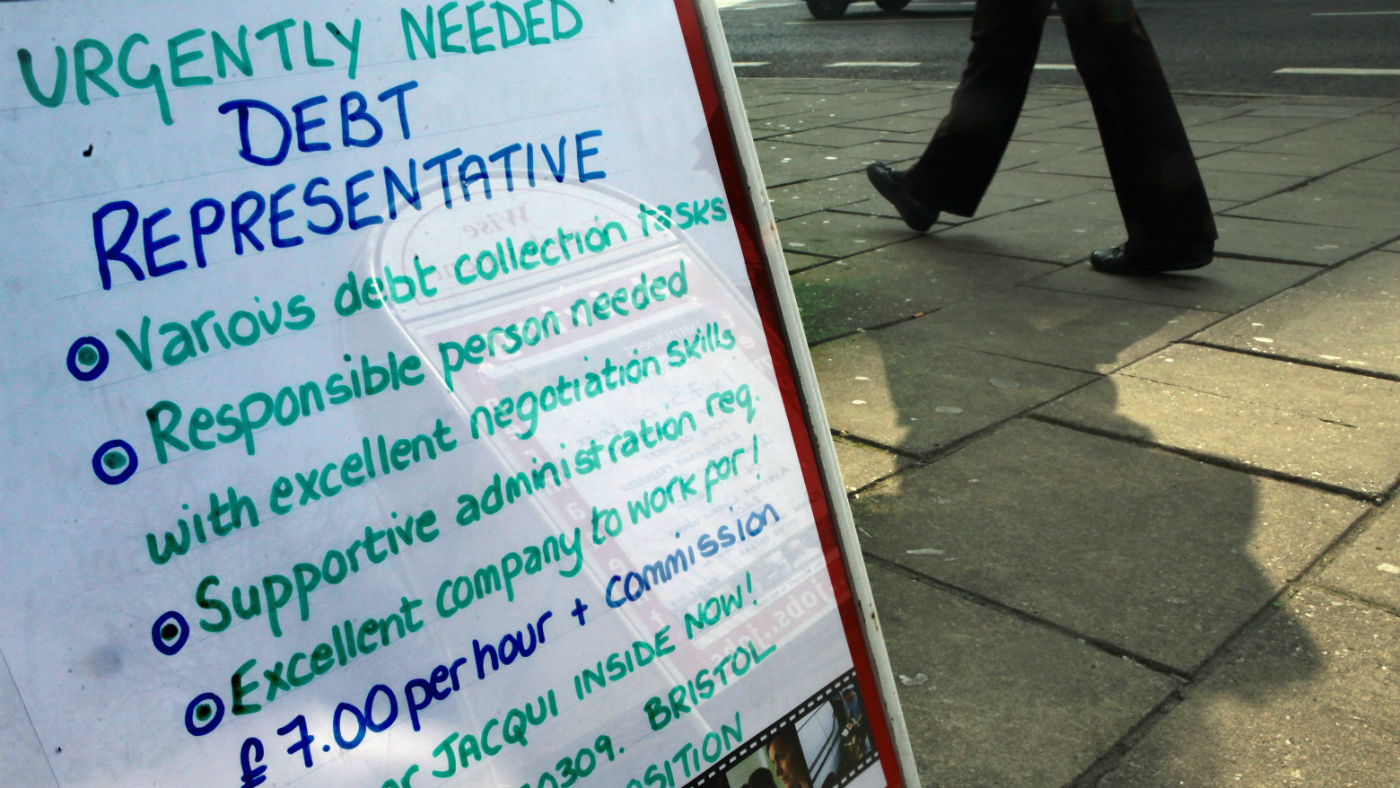Bailiffs 'still abusing powers', charities warn
Court-appointed collectors are accused of refusing offers of payment and intimidating debtors

A free daily email with the biggest news stories of the day – and the best features from TheWeek.com
You are now subscribed
Your newsletter sign-up was successful
A number of bailiffs are still "abusing their powers" and treating vulnerable debtors unfairly, a consortium of five charities has warned.
In a report called Taking Control, the five groups are calling for the government to use its upcoming three-year review of laws applying to debt collection to toughen up legislation and introduce greater protection for people in debt.
In 2014 new rules came into force that imposed certain restrictions on bailiffs. These state they cannot enter homes at night, or impose unauthorised fees, and must always prove their identity.
The Week
Escape your echo chamber. Get the facts behind the news, plus analysis from multiple perspectives.

Sign up for The Week's Free Newsletters
From our morning news briefing to a weekly Good News Newsletter, get the best of The Week delivered directly to your inbox.
From our morning news briefing to a weekly Good News Newsletter, get the best of The Week delivered directly to your inbox.
But the seven charities – Citizens Advice, the StepChange debt charity, the Children’s Society, Christians Against Poverty, Advice UK, Z2K and the Money Advice Trust – say these rules are being routinely flouted.
One in four of 1,400 debtors visited by a bailiff over the past six months said they had made an offer of payment over the phone, but this was refused.
"That's because the current fee structure incentivises bailiffs to visit homes," says The Mirror. It's also against the law that was passed in 2014.
As well as stating that some bailiffs regularly fail to accept offers of payment, the report says they often seek to intimidate debtors and also fail to take account of whether a debtor is particularly vulnerable, says the BBC.
A free daily email with the biggest news stories of the day – and the best features from TheWeek.com
It also points out that one of the most common reasons for bailiffs being called in is when local authorities are trying to recover unpaid council tax.
"Between 2014 and 2015, councils in England and Wales asked bailiffs to pursue debts on 2.1 million occasions," says the BBC.
The charities recommend seven changes to the current framework. These include establishing an independent regulator for the sector, as well as a "free, clear, transparent and accessible complaints procedure".
They also say a consistent framework should be established to encourage good practice and agree affordable repayments. This would ensure that the use of bailiffs, especially by councils, was only ever a last resort.
-
 6 of the world’s most accessible destinations
6 of the world’s most accessible destinationsThe Week Recommends Experience all of Berlin, Singapore and Sydney
-
 How the FCC’s ‘equal time’ rule works
How the FCC’s ‘equal time’ rule worksIn the Spotlight The law is at the heart of the Colbert-CBS conflict
-
 What is the endgame in the DHS shutdown?
What is the endgame in the DHS shutdown?Today’s Big Question Democrats want to rein in ICE’s immigration crackdown
-
 Brits keeping 21 million ‘money secrets’ from friends and family, survey reveals
Brits keeping 21 million ‘money secrets’ from friends and family, survey revealsSpeed Read Four in ten people admit staying quiet or telling fibs about debts or savings
-
 London renters swap cramped flats for space in suburbia
London renters swap cramped flats for space in suburbiaSpeed Read New figures show tenants are leaving Britain's cities and looking to upsize
-
 Should the mortgage holiday scheme have been extended?
Should the mortgage holiday scheme have been extended?Speed Read Banks warn that some homeowners may struggle to repay additional debt
-
 RBS offers coronavirus mortgage holidays
RBS offers coronavirus mortgage holidaysSpeed Read Taxpayer-owned bank follows measures taken in virus-struck Italy
-
 What are the changes to National Savings payouts?
What are the changes to National Savings payouts?Speed Read National Savings & Investments cuts dividends and prizes for bonds
-
 China clears path to new digital currency
China clears path to new digital currencySpeed Read Unlike other cryptocurrencies, Beijing’s would increase central control of the financial system
-
 Why are donations surging to the RNLI?
Why are donations surging to the RNLI?Speed Read Charity enjoys flood of funding after criticism for overseas work
-
 PPI deadline day: how to claim
PPI deadline day: how to claimSpeed Read Final chance for consumers to apply for compensation